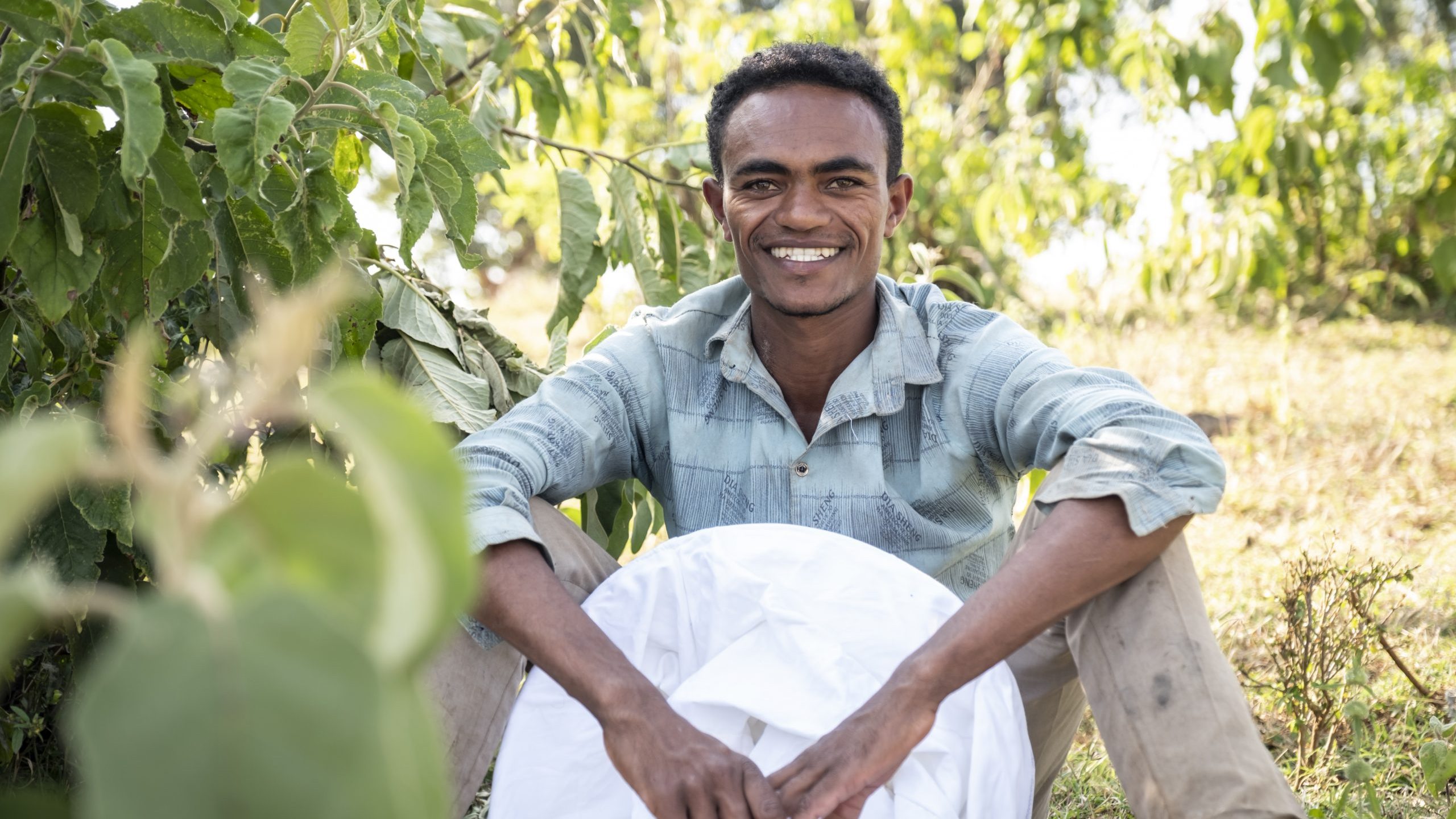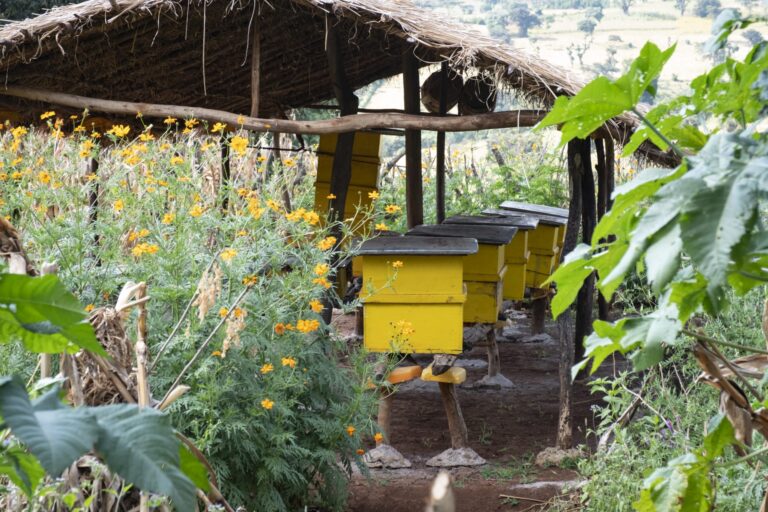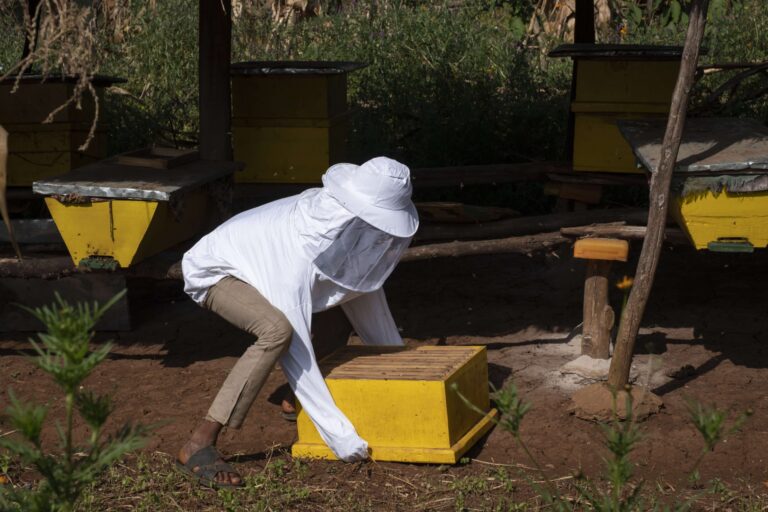
The bee's gold
Project area: Dano
Ethiopia is a country which is looking towards the future: about 60 per cent of people are under 25 years old. When young people are lacking opportunities, however, especially on the job market, their frustration grows. They emigrate or turn against the government – in the worst cases with violence. In partnership with the German Society for International Cooperation (GIZ) we have therefore created a “Green Innovation Centre” in the Dano project area, which promotes agricultural production and marketing associations. In this way we want to create local value chains in rural areas and give young women and men possibilities for the future.
There is humming in the garden behind Shuguti Shalama’s hut. Countless bees buzz around eleven beehives, land on deep yellow flowers and fly to the nearby river to drink and to collect water to cool their hive.
Shuguti walks slowly along the hives. He checks whether termites, spiders or ants have collected anywhere – the natural enemies of his bees. A beekeeper’s jacket protects him. The thin 22-year-old received it from the foundation after a training course in beekeeping.
There he learned how he can build better wooden beehives. So far, he has finished six. Protected from the sun, they stand under a roof which is covered with dry grass. The same with other ready-to-use modern beehives, which Shuguti has bought from the foundation at a favourable price.

He had already tried his luck as a beekeeper earlier: with woven baskets, which he hung in branches to attract wild bees, he got at the most two kilos of honey per hive. The first harvest from his new beehives is still to come: “I reckon on more than 200 kilos.”
Shuguti will sell this to cooperatives in the Green Innovation Centre in Seyo: one of them processes the honey further, other young entrepreneurs put it in jars and a different company markets it. Menschen für Menschen, together with the German Society for International Cooperation (GIZ), brought the centre to life in the small town in the Dano project area in 2015. In this area Niger seed, maize and soya beans thrive particularly well, yet up until now these raw materials have hardly at all been processed by the farmers living here. Wholesalers buy them at a very favourable price and transport them off. The centre serves to prevent this sucking off of profits: the goal instead is to build up value chains locally and to create income for the many unemployed young people.
So far more than 400 women and men have organised themselves into start-ups. In the foundational phase they received start-up capital and machines. In training sessions, they learned how they can process honey, produce animal feed and make valuable oil from Niger seeds. In the meantime, the cooperatives work independently. “Now we want to offer even more people prospects and to further build up the production of honey and animal feed.” That’s how Tesfalidet Gebrekidan, deputy manager of the Dano project area, describes the goal of the second project phase, which runs until 2021 and aims to reach a further 800 women and unemployed young people.
In Shuguti’s community alone the charity has trained 37 young beekeepers. Like him they supply it to the cooperatives in Seyo, and several times a week are still visited by the charity’s development assistants. “Especially for people who possess little or no farmland of their own, beekeeping is a good way of making an income,” says Tesfalidet.
“Shuguti’s little garden is sufficient to get enough money with the bees.” Even more valuable than the honey is the beeswax. Roughly speaking, his buyers at the Green Innovation Centre pay almost 5.50 euros per kilo. For a kilo of honey, the young beekeeper earns about 4 euros. “Earlier I simply threw the wax away. I didn’t know how valuable it is,” says Shuguti.

With the proceeds from the first 18 kilos he bought himself two sheep. “When I have saved up some money, I’ll buy myself an ox,” says Shuguti.
He left school after year three so as to help his family in the fields. He is proud of the fact that as someone who is illiterate, he can learn a profession in the charity’s training sessions. “Earlier I tried to get honey somehow, today I’m a professional beekeeper,” says Shuguti grinning. He has a two-year-old son. “Elias should learn to read, write and add up and later go on to study,” he says. “I’m going to work hard for his future.” The bees will help him.